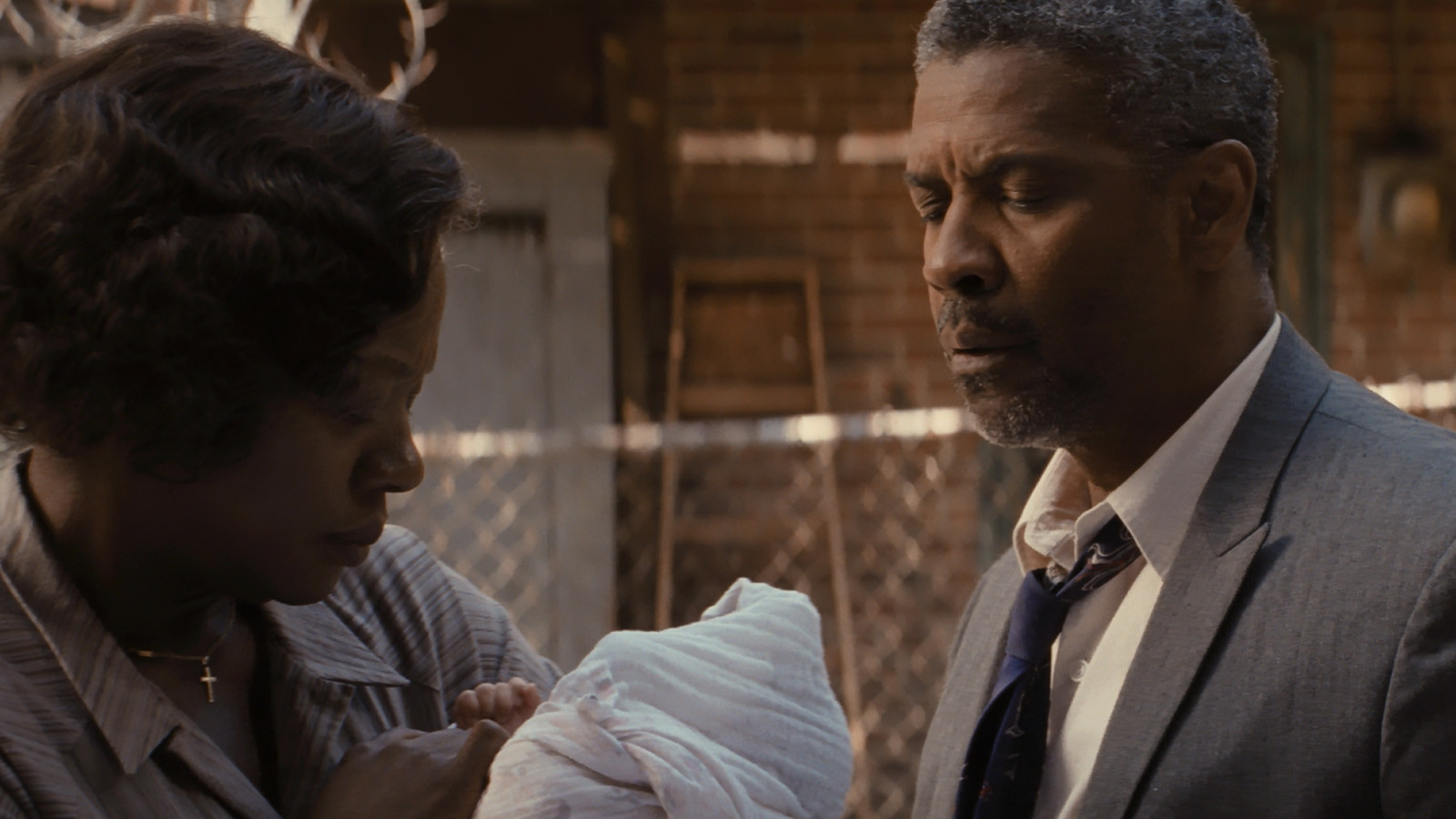
For me, Fences is an interesting delve into how the Greatest Generation raised their children and families, particularly black families. Fences follows Troy Maxson (Denzel Washington) a sanitation worker in 1950s Pittsburgh. Troy is a former star baseball player in the Negro Leagues and a former convict, now supporting a wife Rose (Viola Davis) and son Cory (Jovan Adepo).
Troy’s harsh, tough love parenting techniques displayed a lot of what I’ve always heard about how the generation that raised the baby boomers behaved, particularly the black ones. Beaten down by the virulent racism prevalent in American society, the men in particular in the pre-Civil Rights generation came home and coped with their struggles by turning to the bottle and often taking out their frustrations and disillusionment on their families. This is seen most clearly in Troy and Cory’s relationship. Cory is an aspiring football player who is being recruited by a college program. Troy refuses to sign off on it though, forcing his son to instead on working and learning a trade. Troy’s being barred from ever using his own baseball talents to try to make the major leagues due to the ban on black players has convinced him that white society would never allow a black athlete to excel too far in sports, thus Cory was only wasting his time and setting himself up for disappointment. Rose and Cory try to convince him of the changing times to no avail. Troy couldn’t fathom that society would ever let a black boy succeed in life and sought to protect his son from disappointment and set him on the path toward a life that was more feasible and within reach. Troy did this with a heavy hand and unflinching tough love; displaying a controlled ruthlessness that mirrored what he believed his son was destined to encounter outside of their home.
I was also struck by the conundrum that Rose found herself in. After devoting herself to Troy and Cory, being a loving and supportive wife and mother, she has a bomb dropped on her when Troy tells her that not only did he cheat on her, but that his mistress is having his child. Rose is understandably upset and devastated but due to the culture of the times, she has little recourse and stays with Troy, eventually even agreeing to help raise his daughter. Her story arc illustrates why black women would have needed and continue to need a political movement outside of civil rights, like feminism or womanism to speak to their experiences and struggles as women outside of their experiences and struggles as black people.
Viola Davis will in all likelihood win an Oscar for her turn as Rose Maxson and is the performance most raved about. She is dynamic in the role and displays the quiet dignity of a 50s housewife and accurately displays the pain and confusion a woman would have at Troy’s revelation. Denzel is Denzel as Troy Maxson, wonderfully acted if not a little on the nose as Denzel Washington in a drama. Mykelti Williamson also does well as Troy’s brother Gabriel, a WWII veteran whose war injury has left him mentally disabled. He had some rightfully deserved early buzz for Best Supporting Actor that has tailed off recently.
Fences is a film that was an interesting watch in its examination of pre-civil rights, 1950s black life and as a glimpse into a generation’s past life that I’d only ever heard stories about. The film does move and flow more like a play than a movie and was maybe 15 minutes too long in my eyes. I still think it’s worth a look for the performances alone and a look at a time period and story that aren’t covered on the big screen with any sort of frequency.
Image: Paramount Pictures

